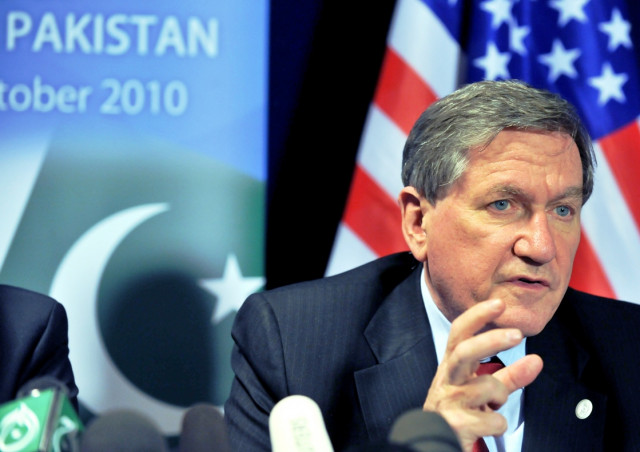US eyes new support for Pakistan
The US is looking to expand support for Pakistan in high-level talks but also nudging for more on fighting extremism.

Secretary of State Hillary Clinton was due to join talks on the second of three days of a "strategic dialogue," an initiative by Washington to develop long-term assistance for struggling Pakistan.
Two previous rounds of the dialogue focused on agriculture, water and energy. But US officials said the latest talks will also review Pakistan's requests for military assistance, a step likely to worry neighboring India.
US envoy Richard Holbrooke said that Clinton has devoted more time to Pakistan than any other country and credited the efforts with easing distrust between the governments, if not the rampant anti-Americanism in Pakistan.
"We believe that we have made a great deal of progress and we believe that that progress has reduced the threat to our homeland, while not eliminating it," Holbrooke, the US special representative on Afghanistan and Pakistan, said Wednesday evening at the Brookings Institution.
But he added: "We all recognize how much more has to be done."
Pakistan has won US praise after it mounted an offensive against homegrown Taliban extremists who last year advanced perilously close to Islamabad, the capital of the Islamic world's only declared nuclear power.
But a White House report to Congress earlier this month stated bluntly that Pakistan has not confronted Afghanistan's Taliban, in what experts see as a bid by Islamabad to preserve influence in its northern neighbor.
The United States had hoped its image in Pakistan would enjoy a turning point after US authorities moved rapidly to help victims of the nation's worst-ever floods, which affected 21 million people.
The two nations encountered another crisis last month when a NATO helicopter in Afghanistan killed Pakistani troops along the border. A furious Pakistan blocked the main transit point for Afghan war supplies until receiving a formal apology.
Pakistani Foreign Minister Shah Mehmood Qureshi, referring to Holbrooke's remarks, said: "When you say more has to be done, it is not just the United States telling Pakistan. It is Pakistan telling the United States as well."
"Fighting terrorism remains a strategic and moral imperative for us," Qureshi said, while adding: "Actions are required that reinforce and not undercut such counter-terrorism cooperation."
"I reiterate again -- Pakistan's sovereignty is and will remain non-negotiable," he said.
US Defense Secretary Robert Gates met Pakistan's army chief, General Ashfaq Kayani, on Wednesday and again offered condolences over the border killings, which he said were unintentional.
Obama on Thursday told Qureshi he would visit Pakistan in 2011 but not next month when he pays his first presidential visit to India.



















COMMENTS
Comments are moderated and generally will be posted if they are on-topic and not abusive.
For more information, please see our Comments FAQ